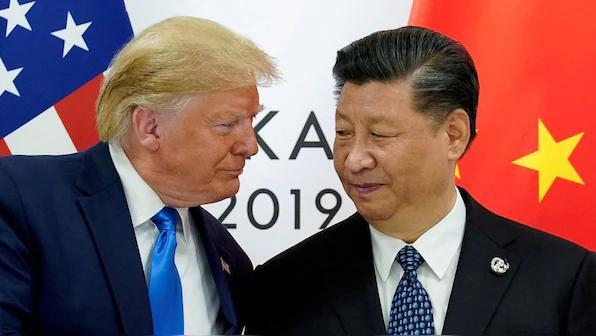
China Refuses to Join Denuclearisation Talks with US & Russia
In a recent development that has sent shockwaves around the world, China has refused to join trilateral denuclearisation talks with the United States and Russia. This decision comes after US President Donald Trump called for Beijing to join the negotiations, citing the need for a comprehensive approach to addressing the issue of nuclear disarmament.
According to a report by Moneycontrol, Chinese Foreign Ministry Spokesperson Guo Jiakun stated that the expectation of including China in the talks was “neither reasonable nor realistic”. Guo pointed out that China and the US are not on the same level when it comes to nuclear capabilities, and therefore, it would be unfair to expect China to participate in discussions on an equal footing with the United States.
The decision by China to refuse participation in the talks has been met with disappointment and concern by many, who see it as a missed opportunity to address one of the most pressing global issues of our time. The United States and Russia have been engaged in a series of high-level talks aimed at reducing tensions and limiting the spread of nuclear weapons, and the inclusion of China would have added a significant layer of complexity and depth to the negotiations.
However, China’s decision to opt out of the talks is not entirely surprising. For years, China has been wary of being drawn into a situation where it would be forced to compromise on its own nuclear arsenal, which is still relatively small compared to the stockpiles held by the United States and Russia.
In recent years, China has been rapidly expanding its nuclear capabilities, and has been accused of violating international agreements on nuclear proliferation. The United States and Russia have been critical of China’s actions, and have called for Beijing to adhere to the same standards and norms as other nuclear-armed states.
Despite the concerns of the international community, China has maintained that its nuclear program is purely defensive in nature, and that it poses no threat to regional or global stability. However, the rapid expansion of China’s nuclear capabilities has raised concerns about the potential for a nuclear arms race in the Asia-Pacific region, and the need for greater transparency and cooperation on nuclear issues.
The refusal by China to join denuclearisation talks with the US and Russia is a significant setback for efforts to reduce tensions and limit the spread of nuclear weapons. It highlights the challenges of addressing complex global issues, and the need for greater cooperation and understanding among nations.
In the wake of China’s decision, the US and Russia have been forced to re-evaluate their strategies and consider alternative approaches to addressing the issue of nuclear disarmament. The United States has said that it is willing to engage in bilateral talks with Russia on nuclear issues, and has called on China to join the Comprehensive Nuclear-Test-Ban Treaty (CTBT), which bans all nuclear testing.
However, the prospects for progress on these fronts are uncertain, and the future of nuclear disarmament efforts remains uncertain. The refusal by China to join denuclearisation talks with the US and Russia is a significant setback, and highlights the need for greater cooperation and understanding among nations if progress is to be made on this critical issue.
In conclusion, China’s refusal to join denuclearisation talks with the US and Russia is a significant development that has major implications for global efforts to reduce tensions and limit the spread of nuclear weapons. While the decision may be seen as a setback by some, it also highlights the complexity and challenges of addressing this critical issue. As the world continues to grapple with the risks and threats posed by nuclear weapons, the need for greater cooperation and understanding among nations has never been more pressing.



